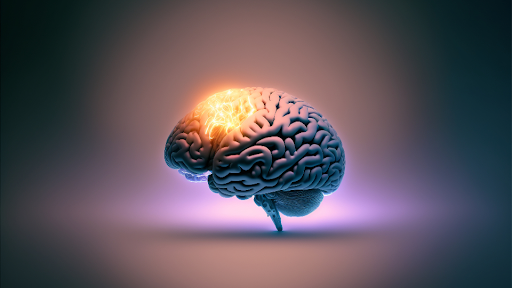
Aging is a natural process that occurs in all our organs. The brain is no exception: brain shrinkage and loss of neural connections over time can lead to deficits in cognitive abilities such as thinking, memory and spatial reasoning [1]. Fortunately, several measures can be taken to slow down brain aging. Brain-training exercises and puzzles such as Sudoku and crosswords are popular ways to keep the brain active. Their effectiveness in mitigating cognitive decline has been supported by science. Studies demonstrated the capacity of crossword puzzles to improve cognition and decrease brain shrinkage in patients with mild cognitive impairment [2]. However, these aren’t the only activities that can improve brain health. Below, we present five other ways you can keep your brain active:
1. Exercise
Numerous studies have shown the benefits of regular exercise on the brain. Exercise promotes blood flow to the brain, helping fuel cognitive processes. It also facilitates neuroplasticity, a process that involves the formation of new connections between neurons in the brain. Of course, exercise also positively affects the rest of the body by improving cholesterol levels, lowering blood pressure and helping maintain blood sugar balance, among other things. [3]. Experts recommend at least 150 minutes of moderate-intensity activity per week for adults [4]. You don’t need a gym membership to reap the benefits of exercise. For instance, gardening, yoga and walking are great ways to stay active. If you’re not a fan of working out, try to find a group exercise class or an exercise program to keep yourself motivated!
2. Meditation and practicing mindfulness
In addition to its benefits in mood regulation and stress management, meditation has positive effects on brain aging. Studies found that prolonged engagement in meditation can increase gray matter density in the hippocampal and frontal regions of the brain, improving memory and learning [5,6]. Furthermore, practicing mindfulness can increase anterior insula and cortical thickness [7]. The anterior insula is important for social cognition and the processing of emotions, while the cortex plays a crucial role in higher mental functions like decision-making, language and reasoning. Thus, it may be useful to incorporate meditation into your daily routine. Just 15 minutes of mindfulness per day can provide a multitude of long-term physical and cognitive benefits.
3. Socialize
Hanging out with friends can also boost brain health. Socializing is a complex activity that requires the brain to perform several functions at once. When you interact with others, you activate areas in your brain responsible for language, reasoning and emotional processing. Thus, engaging in social activities can strengthen neural networks and improve attention and memory [8]. Forming social connections can also lower the risk of serious illnesses such as heart disease and stroke [9]. Therefore, it is important to build and maintain meaningful relationships as you get older. This can mean attending community events, joining clubs or simply chatting with friends and family. If you can’t meet others physically, take advantage of technology such as FaceTime or Zoom. Any form of social activity is beneficial, be it in-person or virtual.
4. Learn a new skill
Challenging your brain with new activities strengthens neural connections. Learning can physically change the brain’s structure, facilitating the formation of new neural connections and reorganization of existing ones. An experiment on older adults involved a three-month learning program during which they participated in three classes weekly to learn three different skills [10]. Researchers found that the participants’ cognitive scores for attention and memory improved significantly after the program [10]. Therefore, lifelong learning can help protect the brain from age-related deterioration. Furthermore, accomplishing milestones while acquiring a new skill releases dopamine, the “feel-good” neurotransmitter. This boosts feelings of happiness, motivating you to learn further. If you want to keep your brain sharp, try playing an instrument, cooking a new recipe or learning a language!
5. Volunteer in your community
Volunteering is a simple but powerful activity that can allow one to stay active, socialize and learn new skills. It can help you improve their cognitive abilities while providing them with a sense of purpose and fulfillment. Researchers found that older adults who volunteered had better memory and executive function compared to non-volunteers [11]. Thus, going out and serving your community might protect you from Alzheimer’s disease and other forms of dementia. Volunteering can also reduce stress by promoting the release of dopamine, which, in turn, decreases the risk of heart disease, stroke and depression [12]. In summary, helping others not only benefits your community but also enhances your physical and mental well-being.
In conclusion, you don’t have to drastically change your lifestyle to enhance your cognitive health and slow brain aging. In fact, you may engage in many of these activities on a regular basis. If not, find some that interest you and try to incorporate them into your daily routine. In time, you’ll not only boost cognitive function but also enjoy a more fulfilling and vibrant life!
References
- https://www.verywellmind.com/prevent-brain-shrinkage-2795016#citation-10
- https://www.health.harvard.edu/blog/have-you-done-your-crossword-puzzle-today-202211292857
- https://www.ncbi.nlm.nih.gov/pmc/articles/PMC4410170/
- https://www.cdc.gov/physical-activity-basics/guidelines/?CDC_AAref_Val=https://www.cdc.gov/physicalactivity/basics/age-chart.html
- https://www.ncbi.nlm.nih.gov/pmc/articles/PMC3184843/
- https://www.ncbi.nlm.nih.gov/pmc/articles/PMC3004979/
- https://www.ncbi.nlm.nih.gov/pmc/articles/PMC1361002/
- https://www.health.harvard.edu/blog/3-ways-to-build-brain-boosting-social-connections-202109082585
- https://www.cdc.gov/social-connectedness/about/?CDC_AAref_Val=https://www.cdc.gov/emotional-wellbeing/social-connectedness/affect-health.htm
- https://www.scientificamerican.com/article/to-stay-sharp-as-you-age-learn-new-skills/
- https://health.ucdavis.edu/news/headlines/volunteering-in-late-life-may-protect-the-brain-against-cognitive-decline-and-dementia/2023/07
- https://www.mayoclinichealthsystem.org/hometown-health/speaking-of-health/3-health-benefits-of-volunteering
